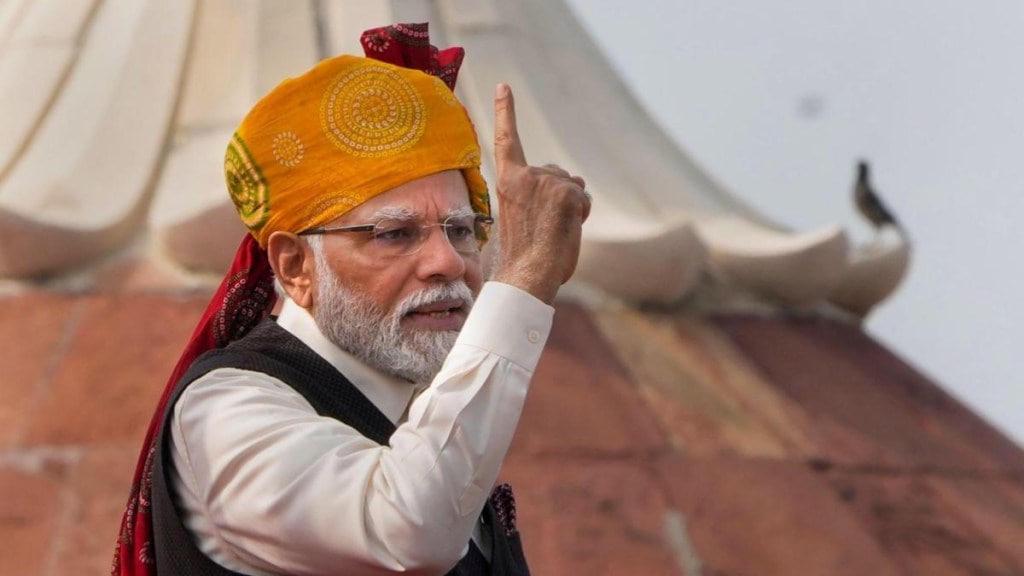Something that has been said often during this endless election campaign is that Narendra Modi’s biggest asset is Rahul Gandhi. What is said less is that in this Lok Sabha campaign the opposite could also be true. When our Imperial Dynasty’s heir first talked of how he had opened a shop of love in a bazaar of hatred, I dismissed it as a line that sounded as if it had been borrowed from a B-grade Bollywood film. But in recent days, as the Prime Minister’s dog whistles against Muslims have become louder and more absurd, I have found myself thinking hard about how I would have voted (I did yesterday) if I were Muslim. I did not need to think too hard. I would have voted for any candidate who could defeat the BJP. The Prime Minister has made it clear that he does not need Muslims to vote for him.
The question that puzzles me is why a politician as skilled as Modi has not noticed how much this has helped the man he sneeringly describes as a prince. He deliberately uses the Urdu word Shahzada instead of the Hindi word Rajkumar, so it becomes another dog whistle. He has also said many outrageous, untrue things stooping lower than expected of a man who is Prime Minister of the world’s largest democracy. He described the Congress Party manifesto as being one that the Muslim League would have produced. It is not. He said Hindu wealth would be stolen by a Congress government and distributed among “infiltrators” who had “too many children”. And for no valid reason has said in more than one interview that he would dedicate his life to prevent reservations based on religion. These assertions are based on so little evidence that it is not just Muslims he has alienated but millions of Hindus who do not believe that ethnic and communal tensions will help India.
The odd thing is that in whipping up this hysteria he has distracted from the real case he can make against Rahul Gandhi. This is that his economic ideas are terrifying. As my friend, Sadanand Dhume, wrote last week, they would turn India into “Venezuela on the Ganges”. In a recent speech Rahul said he was born in “the system” and knew it well. He reminded us (unnecessary reminder) that he was born and had lived most of his life in the Prime Minister’s house. It was this that had taught him that “the system” is against the poor and those of low caste. He does not explain why if he knew all this, he did not persuade Granny, Daddy or Mummy to change the system.
What he outlined instead were plans for what he will do if he gets a chance to become India’s leader. He will change “the system” by redistributing wealth and by reserving jobs at the highest levels of government and even in government contracts for those who come from deprived castes. It brought back for me memories of another prime minister with similar ideas. Vishwanath Pratap Singh wanted even doctors to be chosen based on their caste. Remember?
Then when he developed kidney problems, he spent long summer months in London, at taxpayers’ expense, because he said that not only were doctors better but the water for his dialysis was cleaner. It was a shocking admission and never got the attention it deserved. It is to Modi’s credit that he has pointed out, after Rahul’s recent diatribe against “the system” that caste cannot be the basis for handing out government contracts because this would mean that bridges would be designed by those without the skills to build a bridge.
As someone who has spoken out clearly against reservations, his words had a special resonance for me. At the risk of facing fresh demands for my arrest, I shall repeat that we need less reservations, not more. What we need urgently are many more institutions that teach skills. Unemployment has emerged in this election, as it has in most elections, as the most troubling issue for young people but the real problem is not unemployment but unemployability.
Millions of our graduates are sadly people who do not find jobs, except in government through caste reservations, because their education has been so third rate that it would not be considered an education anywhere else in the world. If there is a vital problem that Modi has not addressed in this past decade, it is this. Hopefully, if he wins a third term, he will put this at the top of the agenda he has already laid out for his first hundred days. In my ever-humble opinion, a third term was a certainty when the election campaign began. If Rahul Gandhi says today that he can put down in writing that Narendra Modi will not become India’s next prime minister it is because his “shop of love in the bazaar of hatred” has a definite appeal for Muslim voters.
Let me repeat that if I were Muslim I would not be voting for the BJP. Modi has said often that his idea of secularism is that his welfare schemes do not distinguish beneficiaries by their religion. Clearly there is much for him to learn about real secularism and how much it has benefited India. May I suggest a few conversations with the Khan Market gang whom he so reviles.
